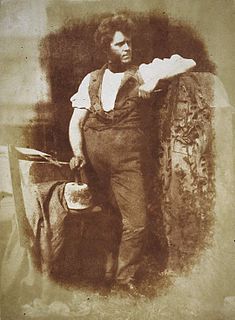A Quote by Henri Frederic Amiel
True poetry is truer than science, because it is synthetic, and seizes at once what the combination of all the sciences is able, at most, to attain as a final result.
Related Quotes
Lore is my favorite kind of story. Because it's not only historical, it's a lie everyone knows is a lie but tells anyway. I love that. Of course every story I tell is true. Completely true. Completely and utterly at least five-eighths of the way to being true, which is truer than any piece of lore and truer than most truths you'll hear.
I view all art as an effort to translate brain concepts into a work. These brain concepts are synthetic ones - the result of many experiences. But a single work of art, or even a series of works, more often than not cannot translate these synthetic concepts adequately. Yves Saint Laurent once said that he suffered greatly when creating. He is not alone in that. Most artists do the same and say as much.
It seems perfectly clear that Economy, if it is to be a science at all, must be a mathematical science. There exists much prejudice against attempts to introduce the methods and language of mathematics into any branch of the moral sciences. Most persons appear to hold that the physical sciences form the proper sphere of mathematical method, and that the moral sciences demand some other method-I know not what.
Yet things are knowable! They are knowable, because, being from one, things correspond. There is a scale: and the correspondence of heaven to earth, of matter to mind, of the part to the whole, is our guide. As there is a science of stars, called astronomy; and science of quantities, called mathematics; a science of qualities, called chemistry; so there is a science of sciences,--I call it Dialectic,--which is the Intellect discriminating the false and the true.
I'm a huge advocate of all sciences. And my favorite - actually, not my favorite because I love all sciences - but my primary science that I study all the time is physics. It's the mother of all sciences because it's just how things move and how things react to the world around them. I feel like I would definitely go to college for physics.
A … difference between most system-building in the social sciences and systems of thought and classification of the natural sciences is to be seen in their evolution. In the natural sciences both theories and descriptive systems grow by adaptation to the increasing knowledge and experience of the scientists. In the social sciences, systems often issue fully formed from the mind of one man. Then they may be much discussed if they attract attention, but progressive adaptive modification as a result of the concerted efforts of great numbers of men is rare.
The interpretations of science do not give us this intimate sense of objects as the interpretations of poetry give it; they appeal to a limited faculty, and not to the whole man. It is not Linnaeus or Cavendish or Cuvier who gives us the true sense of animals, or water, or plants, who seizes their secret for us, who makes us participate in their life; it is Shakspeare [sic] … Wordsworth … Keats … Chateaubriand … Senancour.
We have more poets than judges and interpreters of poetry. It is easier to write an indifferent poem than to understand a good one. There is, indeed, a certain low and moderate sort of poetry, that a man may well enough judge by certain rules of art; but the true, supreme, and divine poesy is equally above all rules and reason. And whoever discerns the beauty of it with the most assured and most steady sight sees no more than the quick reflection of a flash of lightning.
Even mistaken hypotheses and theories are of use in leading to discoveries. This remark is true in all the sciences. The alchemists founded chemistry by pursuing chimerical problems and theories which are false. In physical science, which is more advanced than biology, we might still cite men of science who make great discoveries by relying on false theories.
Science is a human activity, and the best way to understand it is to understand the individual human beings who practise it. Science is an art form and not a philosophical method. The great advances in science usually result from new tools rather than from new doctrines. ... Every time we introduce a new tool, it always leads to new and unexpected discoveries, because Nature's imagination is richer than ours.





































